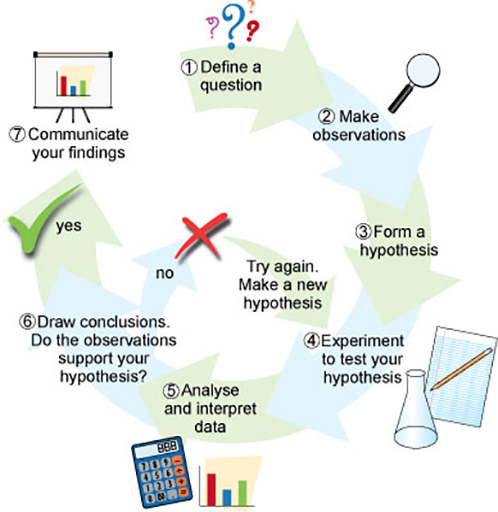6 Is there a difference between ‘good science’ and ‘bad science’?
To answer this question, you first need to consider the scientific method. This approach is shown in Figure 5. You start at number one by defining the question. Then you go through options two to seven clockwise. If your observations don’t support your hypothesis then you leave at stage six and return to the experimental stage. Even if your hypothesis is supported by your observations, a good scientist will continue to seek further opportunities to disprove the hypothesis.
Table 2 summarises what qualifies as ‘good science’ and ‘bad science’.
| Good science | Bad science |
|---|---|
| Asking the right questions | Asking the wrong kind of question |
| Too narrow a question | |
| Too broad a question | |
| Vague terminology | |
| Only looking where you predict you will see something | |
| Influencing the results of an experiment | |
| Clarifying risks | |
| Complying with ethical standards | Ignoring ethical guidelines |
| Complying with moral standards | Uninformed consent |
| Using volunteers for clinical trials | Not allowing participants to withdraw from a clinical trial |
So ‘good science’ contrasts to ‘bad science’ by approaching a problem with an open mind and ensuring that established standards are complied with. You should now complete the end-of-week quiz.

